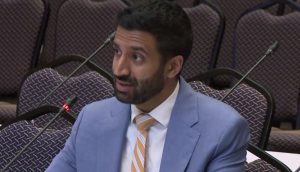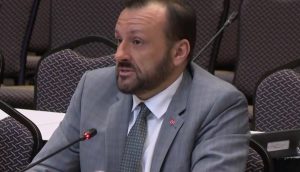The bad news? The world is still distrustful of institutions. The good news? They’re warming up just slightly.
That’s according to the annual Edelman Trust Barometer, which studies global trust in various institutions including government, education and media. The global population shows an average 48% trustworthiness in institutions, up from 47% last year. While anything under 49% is still considered “distrust,” the world is creeping toward neutrality.
Canada remains at 49% overall, where it sat last year.
The country boasts a moderate concern (65%) about “fake news as a weapon” – making Canada less concerned than the likes of the U.S., Mexico and Russia, but more concerned than France, Sweden and the Netherlands.
When it comes to who speaks the truth, Canadians want to hear from academic experts (63%) and technical experts (62%) most. The trust in those experts has increased by five and seven percentage points, respectively. Trust in “a person like yourself” is down five percentage points to 47%. While most figures have gone up in trust, government officers/regulators, boards of directors and CEOs are still on the low side of the trustworthiness scale, all at 37% or less.
Journalism itself has gained 10 percentage points for trust (61%), although social media remains at an all-time low of 28%. Still, despite trust in journalism rebounding, Canadians have a bone to pick with some media organizations. Nearly two-thirds (63%) are concerned that outlets are too focused on large audiences and 54% believe organizations are too focused on a particular political ideology.
Another area of concern? Breaking news. Most Canadians (63%) believe news organizations focus too much on breaking news, which affects their trust.
Nevertheless, only 16% believe that media is “broken,” which pales in comparison to the 46% who believe the government is the most broken institution.
























